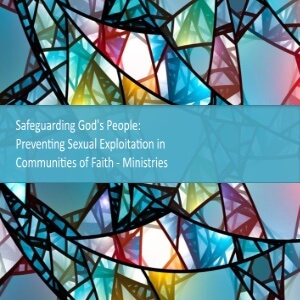
The General Convention Task Force to Update Sexual Misconduct Policies has updated the Safe Church Policies for the Episcopal Church to help and enable clergy, congregations, volunteers, and individuals understand and live into the importance of this training. The Task Force looked at the current Safe Church Policies, and recommended updated models, policies, and practices that address updated issues, including bullying, social media, mission trips, overnight events, and LGBTQ experiences. The purpose of these policies is to create safe and welcoming space for the minors, elders, and people with disabilities in and those engaged in ministry with them, in all of the congregations, institutions, organizations, schools and agencies of each diocese. Theological foundations, behavioral standards, and guidelines for social media and electronic communication are also included.
DOWNLOAD:
Model Policy for the Protection of Children and Youth 2018
Model Policy for the Protection of Vulnerable Adults 2018
FAQ
What are they?
An updated and expanded set of policies, recommended practices and resources designed to foster healthy and sustainable ministry with vulnerable people in The Episcopal Church (TEC). The purpose of these policies is to create safe and welcoming space for the minors, elders, and people with disabilities in and those engaged in ministry with them, in all of the congregations, institutions, organizations, schools and agencies of each diocese.
Why are they needed?
In response to the mandates of 2015 General Convention resolutions A073 and A074, these policies reflect what The Episcopal Church (TEC) has learned from using the 2004 Model Policies and Safeguarding training materials. In addition, they include updates reflecting contemporary concerns such as social media, mission trips, pilgrimages, camp and conference center programs, and other overnight events, as well as experiences of LGBTQ+ and non-binary persons.
Who needs to read, mark and inwardly digest the Model Policies?
All clergy, and lay people who minister with minors and vulnerable adults need to know the model policies and comply with their screening and training requirements; parents, caregivers and vestry members are encouraged to understand the policies and exercise leadership in their implementation.
What’s in them for me?
Look for a concise statement of theological and ethical foundations for safe church practices, useful definitions, behavioral standards designed to ensure that vulnerable people and all who engage in ministry with them are treated with dignity and respect in all settings, standards for screening, training and monitoring lay and ordained ministers working with vulnerable people, processes for responding to concerns, expectations for local (diocesan) policy implementation and audit. In addition, these model policies include entirely new practices and guidelines for the use of social media and electronic communication.
When do the Model Policies take effect?
They are available for your use right now, and all dioceses need to adopt the policies by January 2019. Be sure to confer with your diocesan leadership about local adaptation and implementation.
